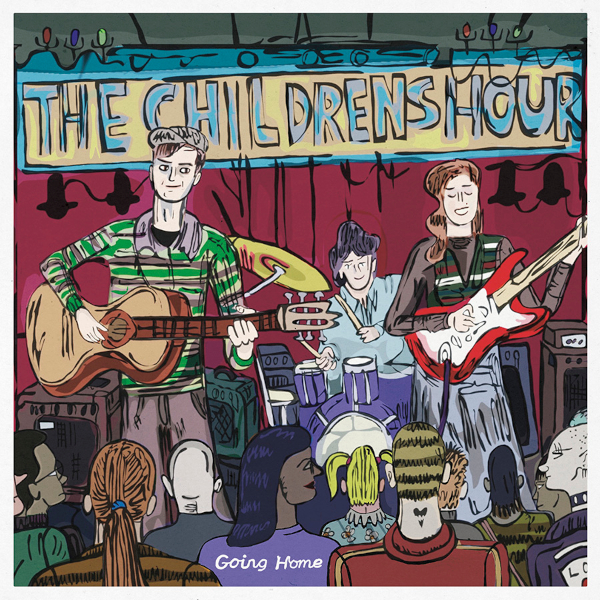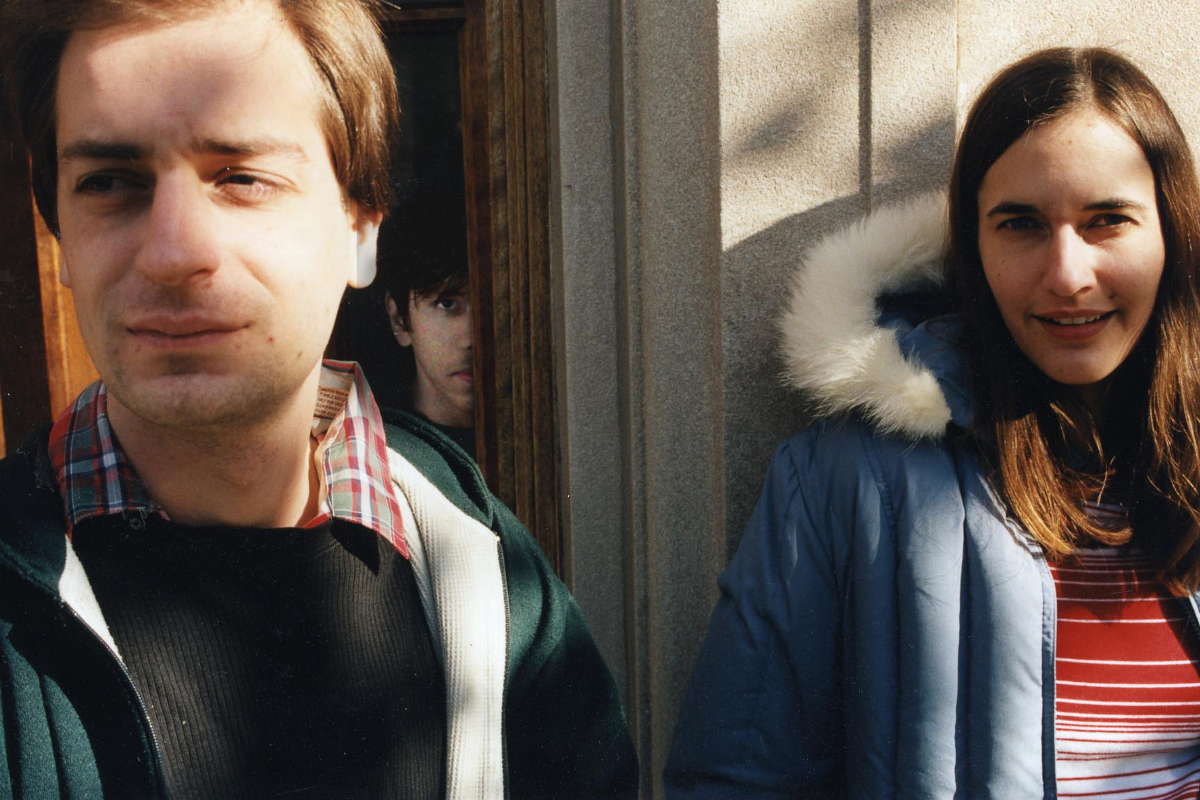The story of The Children’s Hour should be a lot bigger than it is. Formed in Chicago at the turn of the century by singer / guitarist Josephine Foster and guitarist Andy Bar, the pair were later joined by David Pajo (Slint, Papa M, Tortoise et al) on drums.
Releasing their debut album, SOS JFK, via Fire Records in 2003, The Children’s Hour made music that fell somewhere between folk and post-hardcore. Foster’s fragile vocal performances was beautifully aloof. Shy but neither twee nor pretentious, it felt like she wrote songs because she had to. Songs that were severely street-level, and alongside Bar’s distinct tones and Pajo’s syncopated rhythms, The Children’s Hour were an outlier band that should’ve been celebrated much more than they were.
Pajo described the first moment he played drums for the band as something “like putting on a gas mask and getting clean oxygen”. It rings true, for SOS JFK is artistic expression in its purest sense. Following its release, the band embarked on a tour supporting the short-lived Billy Corgan-led Zwan (which also featured Pajo on guitar).
Following a show on that tour in Shelbyville, Kentucky, The Children’s Hour began recording the follow-up to SOS JFK in Paul Oldham’s studio, however the band called time shortly after these sessions, drifting into a fey obscurity for the next two decades.
Riddle in the Rain: G.W. McLennan’s Fireboy 30th anniversary
The recordings of these sessions with Oldham thought to be lost, the producer found them on hard drives which had resurfaced in 2020. Informing the band, Foster, Bar and Pajo reconvened at Nashville’s Bomb Shelter studios to mix and master the songs that would become their second album, Going Home.
Whilst four new tracks and four re-works from SOS JFK, the latter feel far more dynamic and wholesome in their new guises. Pajo’s less-is-more approach from behind the drum-kit is like blood flowing through arteries at a steady pace. He lifts these songs from the skeletal folk played in coffee shops to something more expansive and immediate for wider audiences.
Starting with the wonky riffs and loose rhythms of Leader Solider. A song that starts like a Sunday morning serenade and ends with raucous panache. There’s more bite on this latest version of The Children’s Hour. A frantic quiet/loud dynamic that the band were never really known for.

The Children's Hour - Going HomeThe pulsating delight of Dance With Me is the slice of splendour every music fan searches for within their record collection. “It’s not the way you hold me tight / It’s not the way you look through night / It’s not the way you comb your head / It’s just the way you just stand there,” sings Foster. All love songs are born from simplicity, but it’s how you get there without sounding false that separates the good from the bad. Foster’s songs are true to the core. When she sings you hear and feel just how pure it is.
The spiritual lightness of Bright Lights is another that melts the heart (“On the day that I die / I would have you there beside me”) while Rainbow is an unmoored folk lament inspired by Nico and Jefferson Airplane (“I was vacant like you’d never seen before”).
The second side features the SOS JFK re-works, and with Adoption Day and Anna, The Children’s Hour give us the kind of songs that having been missing in The Innocence Mission’s body of work over the years. Songs that hold a naked intimacy. Foster puts it all on the line, and on the latter, her performance commands the emotional response you’re likely to endure through Mount Eerie’s current works. A primal pain (“I’m ain’t nobody’s wife / I ain’t nobody’s home/ But I know that should he cry for me / Save me a little tear of his and I’ll throw it into the sea”). Through these bone-raw passages, Foster is perceptively poetic without trying to be.
Polvo: a buyer’s guide and look into the bipolar world of the underground touchstone
On Wyoming, you can hear how it perhaps went on to influence Pajo’s work under the Papa M moniker; particularly with song like Truckstop Girl (“He was so young / On a Kansas City run”). That youthful innocence using vast American landscapes as a backdrop for a unique, atmospheric romanticism.
That idealism bleeds into the closing title track. With percussive swings and curling, melodic guitars, Going Home is beautifully nostalgic. An elusively whimsical tale bursting with sheer honest (“Are you coming home my darling / I will always be your darling /If you wait for me my darling / I will wait for you”). In the fact-sheet notes, Pajo likened Foster and Bar’s songwriting to Slint’s Spiderland. “It sounds like some young, forward-thinking, folks who are doing what they do best without any self-awareness.” While sonically the two may not be aligned, the approach and candidness committed to tape most certainly is.
Going Home makes you wonder why there aren’t more bands like The Children’s Hour. Bands that aren’t vanity projects kept on life support by leeching PRs. Bands where stream counts and Instagram likes overshadow the quality of the music itself. The Children’s Hour are band beyond all of that, and one that people simply need in their lives, not only to make things better, but to feel grounded by their honesty. Because, really, Going Home is as honest as music gets.
Going Home is out now via Drag City. Purchase from Bandcamp.


4 replies on “The Children’s Hour: Going Home”
[…] The Children’s Hour: Going Home […]
LikeLike
[…] the David Pajo-inspired riffs that stalk pitch-black hallways and haunt dreams, to the void echoes of post-punk […]
LikeLike
[…] the band is led by Daniel Burton (Ativin and sound engineer for underground legends, Songs: Ohia, Papa M and Windsor For The Derby). While their history has seen a revolving cast of musicians, the latest […]
LikeLike
[…] a reality of outsider culture at youth level. Alongside Britt Walford’s disjointed percussion and David Pajo’s precocious performance on guitar, this was a band that lived on a knife’s edge without really […]
LikeLike